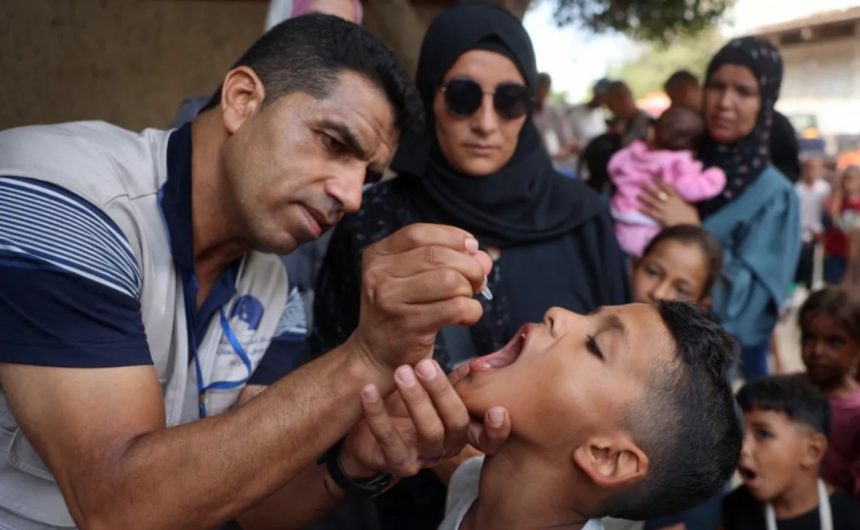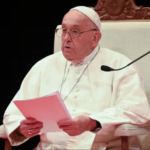The WHO said on Friday that over 560,000 children under the age of ten in Gaza received the first of two doses of the polio vaccine after Israel’s destruction of water and sanitation facilities caused a recurrence of the fatal illness in the beleaguered territory.
UNRWA, the UN organization for Palestine refugees, reports that during the first phase of the UN-led campaign, aid workers have covered more than 90% of the targeted vaccination coverage. On Monday, the UN Office for Coordination of Humanitarian Affairs said that the second round of vaccines will occur in four weeks.
The head of the World Health Organization, Tedros Adhanom Ghebreyesus, tweeted on X: “We commend all the health teams who conducted the complex operation.” “We commend the cooperation and confidence of the families concerned.”
“This is a huge success against the awful day-to-day reality of living throughout the Gaza Strip. Imagine the potential benefits of a ceasefire,” he said.
Israel responded, therefore, with an incursion in Gaza triggered by the October 7th strikes that Hamas orchestrated. Critical infrastructures were destroyed, along with a humanitarian disaster. In July, the WASH Cluster organization managed by the UN that oversees humanitarian operations for water, sanitation, and hygiene- said that more than 70 per cent of all water and sanitation infrastructure had been destroyed or damaged. “Restrictions on Israeli assistance have severely reduced fuel supplies, chlorine and spare parts needed to provide clean water, purification and sewage pumping,” the organization said.
The highly contagious virus was detected in sewage samples in the strip in June, which led to the UN launching its polio campaign after several combat pauses consented to by Israel. Then in August, an 11-month-old boy was diagnosed with polio, becoming the first patient in Gaza to get the diagnosis in 25 years.
Polio primarily affects children under the age of five and can lead to irreversible paralysis or death. The World Health Organization describes it as a highly infectious virus with no cure that can be prevented only through immunization.
Relief workers said the rollout of the campaign was frequently obstructed – particularly in northern Gaza – by Israeli evacuation orders, damaged roads due to shelling, increased fighting and a limited supply of gasoline.
The Israeli force has targeted and killed Palestinians significantly over the last several days. According to an interview that CNN did with Mahmoud Shalabi, a local humanitarian worker in northern Gaza for the UK-based organization Medical humanitarian for Palestinians, known as MAP, on Tuesday: “It has been horrible.”
According to its website, at least 25 MAP employees have been sent to assist the UN-led effort by monitoring the rollout and ensuring respect for international norms and conventions.
Shalabi said, “It’s a dangerous place to live and work right now.” But I think this campaign will be as successful as it can be because of the spirit of the people and the enthusiasm of the healthcare workers here.















